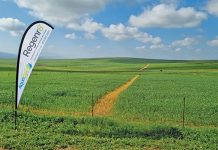A significant decline in the number of endangered Cape parrots counted in the 2007 Cape Parrot Big Birding Day (CPBBD), compared with the gradual annual increase that has been observed since the census began in 1998, has highlighted what experts say is a need for continued studies of this species. This is to ensure that any threats to the Cape parrot population and its subpopulations are identified. The latest count results were a disappointing outcome for the CPBBD, which celebrated its 10th anniversary this year. The organisation aims to estimate Cape parrot population numbers in the wild. Data collected by voluntary observers in the indigenous forests of the Eastern Cape, KwaZulu-Natal and Limpopo was later analysed by scientists such as Prof Colleen T Downs and Kate Meares of the University of KZN’s Cape Parrot Working Group. “We use this data to look at the year-on-year distribution patterns of the Cape parrot, South Africa’s rarest bird, and to estimate its population viability,” Downs said. “Observers also record the presence of other rare bird and mammal species.
As a result, the distribution data captured for samango monkeys and the southern ground hornbill will be mapped.” Meares explained that scientists also needed to understand the movements of Cape parrots between forest sites to better understand their ecology. This goal will probably be realised in the next few years thanks to the recent donation of valuable funds from the World Parrot Trust. Cape parrots are under threat from the destruction of their indigenous forest habitat, illegal capture and trade, and diseases. This year, 252 observers counted a total of 1 266 Cape parrots, a drop of 1 174 from last year. It was the lowest count since 2002, when 1 110 Cape parrots were counted. The 2008 CPBBD takes place on 4 and 5 May. One count will be held on the Saturday afternoon and another the following morning. – Lloyd Phillips Call the Cape Parrot Working Group on (033) 260 5127/04 , fax (033) 260 5105 or visit www.cpwg.unp.ac.za.








